How IPL Athletes Maintain Their Fitness

The Indian Premier League (IPL) is one of the most competitive and high-energy sporting events in the world. With matches played almost daily across packed stadiums and millions watching online, the physical and mental pressure on players is immense. To perform at the highest level, IPL cricketers must maintain peak physical condition, sharp reflexes, and strong mental discipline.
But this topic isn’t just relevant for sports fans. Today’s online entertainment culture — including users of platforms like bd online casino and others — shows that people are increasingly interested not only in the games, but in the athletes behind them. How do these players stay fit during such intense seasons? What routines keep them focused, agile, and injury-free?
In this article, we explore how IPL athletes train, eat, recover, and stay mentally sharp — and how anyone, even casual bettors or online casino users, can borrow these habits to improve their own focus, discipline, and well-being.
Smart Nutrition for Peak Performance
Behind every powerful six or lightning-fast dive on the field, there’s one invisible but crucial factor: nutrition. For IPL players, food isn’t just fuel — it’s a performance tool. Every meal is carefully designed to support strength, endurance, recovery, and focus.
Professional cricketers work with sports nutritionists to build balanced meal plans that combine the right mix of macronutrients: protein for muscle repair, complex carbohydrates for sustained energy, and healthy fats for endurance. Just as importantly, they follow strict hydration protocols to stay energized and alert — especially under the intense sun and lights of IPL stadiums.
Here’s what a typical day of nutrition might look like for an IPL athlete:
- Breakfast: Oatmeal with berries, eggs (boiled or scrambled), multigrain toast, and a glass of fruit juice or electrolyte water
- Pre-training snack: Banana or protein smoothie with chia seeds
- Lunch: Grilled chicken or fish, brown rice or quinoa, steamed vegetables, and a green salad with olive oil
- Afternoon snack: Nuts, yogurt, or a protein bar
- Dinner: Light meal with lean protein (paneer, fish, or tofu), roasted veggies, and whole grain bread
- Post-training recovery: Whey protein shake and coconut water
Discipline plays a huge role. While fans enjoy snacks during matches — or explore online platforms like casino.bdbet.net between games — athletes stay committed to clean eating, especially during the tournament window. Cheat meals are rare, and hydration is continuous throughout the day, with water, electrolytes, and herbal infusions replacing sugary or carbonated drinks.
By staying consistent with their diet, players ensure that they’re not just strong physically, but also focused and resilient mentally — ready for the unpredictable demands of high-level T20 cricket.
Tailored Training Regimens
Cricket may look like a simple bat-and-ball game from the outside, but at the IPL level, fitness training is as advanced as in any elite sport. Each player’s workout is carefully tailored to their role on the field — because the physical demands of a batsman are very different from those of a fast bowler.
Batsmen focus on explosiveness, balance, and core control, which helps them react to deliveries, rotate strike, and convert ones into twos. Bowlers, especially pacers, train for strength, endurance, and joint stability, since they deliver dozens of high-impact balls per match.
Modern IPL teams also use GPS tracking, motion sensors, and AI-based performance analytics to monitor workloads, movement efficiency, and fatigue levels. This data helps coaches personalize workouts and prevent injuries.
Here’s a breakdown of how training differs based on player roles:
| Aspect | Batsmen | Bowlers |
| Primary Focus | Quick footwork, core stability, reflex speed | Lower-body strength, shoulder mobility, endurance |
| Strength Workouts | Cable rotations, kettlebell swings, landmine presses | Deadlifts, lunges, sled pushes |
| Cardio Routines | Interval sprints, agility ladder drills, shuttle runs | Long-distance runs, stair climbs, rower machine |
| Functional Drills | Batting reaction training, medicine ball throws, jump squats | Resistance band bowling action, shoulder rotation circuits |
| Tech Tools Used | Reaction timers, bat swing trackers, eye-hand coordination tools | GPS units, bowling workload trackers, joint stress monitors |
Training isn’t just about pushing limits — it’s also about avoiding overtraining. With matches every 2–3 days, IPL players often alternate between high-intensity sessions and recovery workouts, using real-time data to strike the right balance.
Whether you're an aspiring cricketer or just someone browsing mostbet bangladesh during match breaks, there's plenty to learn from the discipline and precision of professional training.
Mental Conditioning
Physical strength might win matches, but it’s mental strength that wins tournaments. In the high-pressure world of the IPL — where millions of fans are watching, media attention is intense, and every ball can change a game — players must stay calm, focused, and emotionally resilient.
That’s why most franchises now include mental conditioning coaches and sports psychologists as part of their core support team. These professionals help athletes manage stress, build confidence, and recover from setbacks — whether it’s a bad performance or online criticism.
One of the most effective techniques players use is visualization. Before a game, a batsman might mentally rehearse different deliveries and imagine scoring shots. A bowler might picture the perfect yorker landing at the batsman’s feet. This mental preparation helps players stay sharp and reduce uncertainty when the real moment arrives.
Other common mental conditioning practices include:
- Breathwork and meditation to stay grounded during pressure moments
- Routine-building, such as specific warm-ups or rituals, to create a sense of control
- Focus drills to improve concentration and ignore crowd noise or distractions
- Post-match reflection to process emotions and learn from outcomes — win or lose
Mental training is especially important during long travel schedules, bio-secure bubbles, and back-to-back games. The emotional load is real — from maintaining team chemistry to handling personal expectations. Even top players admit to moments of self-doubt and fatigue.
Platforms like mostbet bangladesh and others often show us only the glamorous side of cricket — the winning moments and celebrations. But behind the scenes, it’s a mental marathon as much as a physical one. IPL athletes prepare their minds just as seriously as their bodies, ensuring they show up on game day not only ready, but mentally unstoppable.
Rest, Recovery & Entertainment
In a tournament as intense as the IPL, recovery is not a luxury — it’s a necessity. With matches often scheduled every 48 hours, players must recover quickly, both physically and mentally, to stay sharp and injury-free.
Most teams follow science-backed recovery protocols, which include:
- Quality sleep: 7–9 hours a night with tracking devices to monitor sleep cycles
- Sports massages and physiotherapy to reduce muscle soreness
- Cryotherapy (ice baths or cold chambers) to accelerate recovery and reduce inflammation
- Compression garments and hydration strategies to flush toxins and prevent cramps
But recovery doesn’t stop with the body. Mental rest is just as important.
In their downtime, players unwind in different ways — watching films, reading, gaming, or spending time with teammates. Many enjoy simple, stress-free forms of entertainment to stay relaxed between matches.
One common choice among fans and even some players is engaging in safe, non-addictive online fun, like exploring light games on platforms such as casino.bdbet.net. While athletes avoid any form of gambling or risk-based behavior during competition, they might enjoy casual slots or card-style games for entertainment — just like millions of fans do between innings.
The key here is balance. Professional players understand the importance of unwinding without overindulgence. Whether it’s listening to music, calling family, or exploring safe digital entertainment, the goal is always to return to the field mentally refreshed.
So next time you’re watching an IPL match and see a player perform at peak level, remember: it’s not just the training — it’s the smart recovery and healthy downtime that keeps them at their best.
What Fans Can Learn
You don’t need to be an IPL athlete to benefit from their habits. In fact, many of their daily routines can be easily adapted by anyone — whether you're a student, an office worker, or just someone who enjoys sports and online entertainment.
Small steps make a big difference:
- Start the day with a healthy breakfast and regular hydration
- Incorporate short workouts or stretching sessions into your routine
- Prioritize sleep and rest as part of your daily recovery
- Practice mindfulness or brief meditation to clear your head
- Set limits — in training, eating, screen time, or even online entertainment
This mindset of discipline and balance works just as well for fans as it does for players. Even if you’re spending your evenings watching IPL highlights or checking odds and live updates on mostbet bangladesh, or relaxing between matches on bd online casino, the same principle applies: enjoy it responsibly.
Professional athletes show us that success isn't just about talent — it's about structure, focus, and self-control. And these values translate into daily life, helping anyone improve their well-being, productivity, and enjoyment of the game.
Conclusion
Fitness in the IPL isn't just about six-packs and speed. It's about discipline, recovery, mindset, and purpose — qualities that separate world-class athletes from the rest.
And while not everyone can hit a 150-run knock or bowl at 145 km/h, everyone can follow the formula behind that success: eat smart, train consistently, rest deeply, and live with intention.
So the next time you watch an IPL match or browse your favorite platform, think beyond the scoreboard. Learn from the athletes' habits — and bring their mindset into your own routine.
Train like them. Think like them. And live better, one smart habit at a time.
Frequently Asked Questions (FAQ)
Do IPL players really follow strict diets during the season?▼
Yes. Most players work with professional nutritionists who design high-protein, clean diets. Meals are carefully timed to support training, performance, and recovery — especially during intense tournament schedules.
How many hours a day do IPL players train?▼
On non-match days, players typically train 2–3 hours, including strength, conditioning, and skill drills. Rest and recovery sessions (like physiotherapy or cryo) are also part of the routine.
Do IPL teams use fitness technology?▼
Absolutely. Teams use GPS trackers, performance wearables, heart rate monitors, and motion sensors to track every movement. This data helps prevent injuries and optimize performance.
How do players relax between matches?▼
Players use various methods like meditation, light reading, team games, or casual online entertainment. Some might explore platforms like bd online casino for low-pressure fun or follow live match stats on mostbet bangladesh, while keeping things balanced and stress-free.
What fitness lessons can everyday fans apply?▼
You can start by eating better, staying active for 20–30 minutes a day, and building mental habits like consistency and discipline. The routines of IPL players show that small, smart choices every day lead to long-term results — on or off the field.
Disclaimer
The content provided on this website is for informational and educational purposes only. We do not promote, endorse, or encourage any form of illegal betting or gambling. Readers are advised to check the legal status of betting and gambling in their respective jurisdictions before engaging in any activities. It may be legal in certain regions, but it is the your responsibility to ensure compliance with local laws. We are not liable for any legal or financial consequences arising from the use of this information.


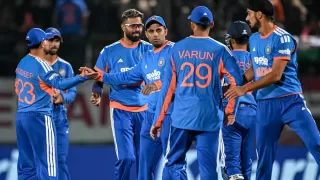
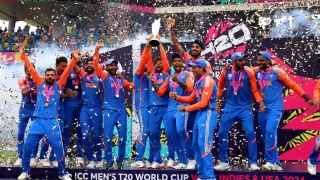
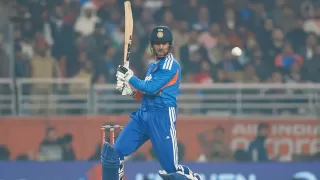
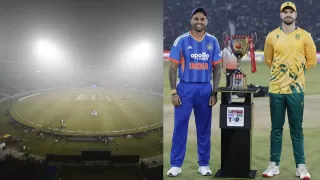
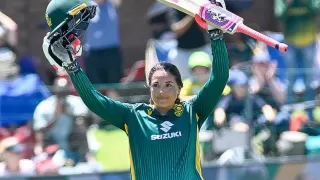
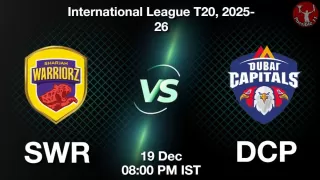

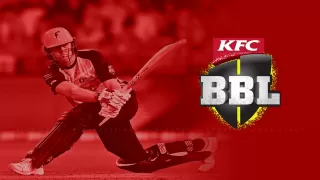

Give Your Feedback